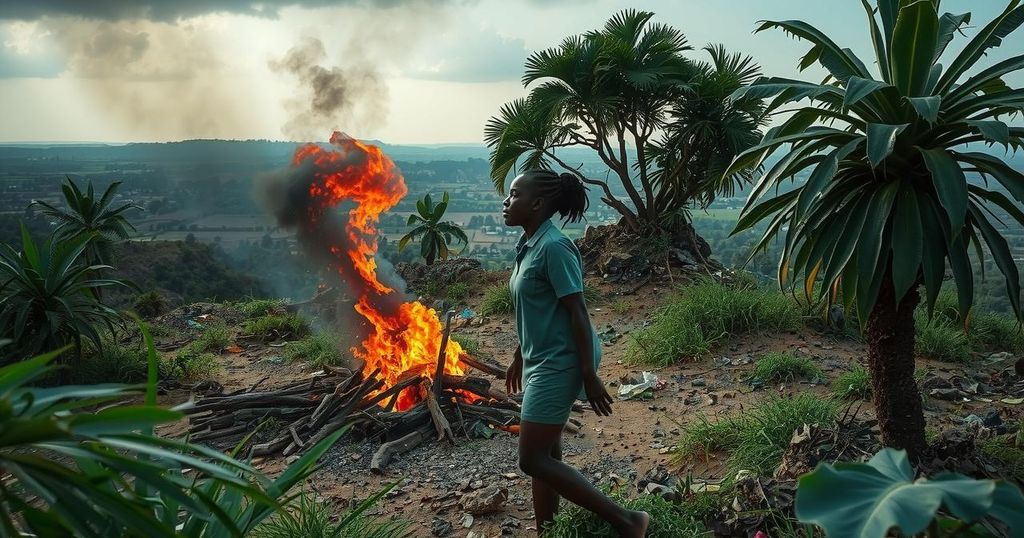The conflict in Kwamouth, DRC, erupted due to a land rights dispute between the Teke and Yaka communities, leading to significant violence, and the displacement of 146,000 people. The humanitarian situation remains dire, with millions requiring aid and essential services disrupted. The violence continues unabated, complicating relief efforts.
The ongoing conflict in the Kwamouth territory of Mai-Ndombe province in the Democratic Republic of the Congo (DRC) is rooted in a protracted land rights dispute between the indigenous Teke community and the Yaka, an agricultural group. The Teke assert their traditional ownership of the land alongside the Congo River, while the Yaka, who migrated to the region, established a cooperative land usage system. However, population pressures, resource scarcity, and political exploitation have exacerbated tensions, leading to violence since June 2022.
The strife has spread across several provinces, notably Kwango, Kwilu, and Mai-Ndombe, resulting in numerous violent incidents, including raids by Yaka militias, known as the Mobondo, on Teke villages, alongside retaliatory attacks by Teke armed groups. As of October 2024, approximately 146,000 individuals have been displaced by this conflict, with humanitarian efforts severely hampered by the ongoing violence. Furthermore, essential services have been disrupted, and a significant proportion of the affected population—over 2 million—require urgent assistance including shelter, food, healthcare, and education.
In terms of violence escalation, 2024 witnessed 84 reported events leading to 191 fatalities, with a high concentration of conflicts in Mai-Ndombe and surrounding areas. Despite the challenges in collecting accurate data, reports indicate a persistent cycle of violence that impedes humanitarian access and deteriorates the safety of communities in the affected provinces. This environment has prompted calls for intervention and support for those impacted by the crisis.
The crisis in the Kwamouth territory is steeped in historical land ownership disputes and complex intercommunal relationships between the Teke and Yaka communities. As primary inhabitants, the Teke proclaim ancestral rights over lands adjacent to the Congo River. The Yaka, who have settled in the region for decades, have historically coexisted with the Teke, creating a nuanced social fabric. However, increasing demographic pressures, diminishing resources, and political manipulation have led to rising tensions that erupted into violence beginning in 2022, fundamentally disrupting life and security in western DRC.
In summary, the conflict in the Kwamouth territory between the Teke and Yaka communities constitutes a significant humanitarian crisis in the DRC marked by longstanding disputes over land rights. The violence has resulted in large-scale displacement, severe humanitarian needs, and a deteriorating security landscape. Urgent measures are required to address the humanitarian situation and restore peace to the conflict-affected areas. The persistent violence continues to hinder access to essential services and support for the local population, necessitating increased awareness and intervention efforts.
Original Source: reliefweb.int






